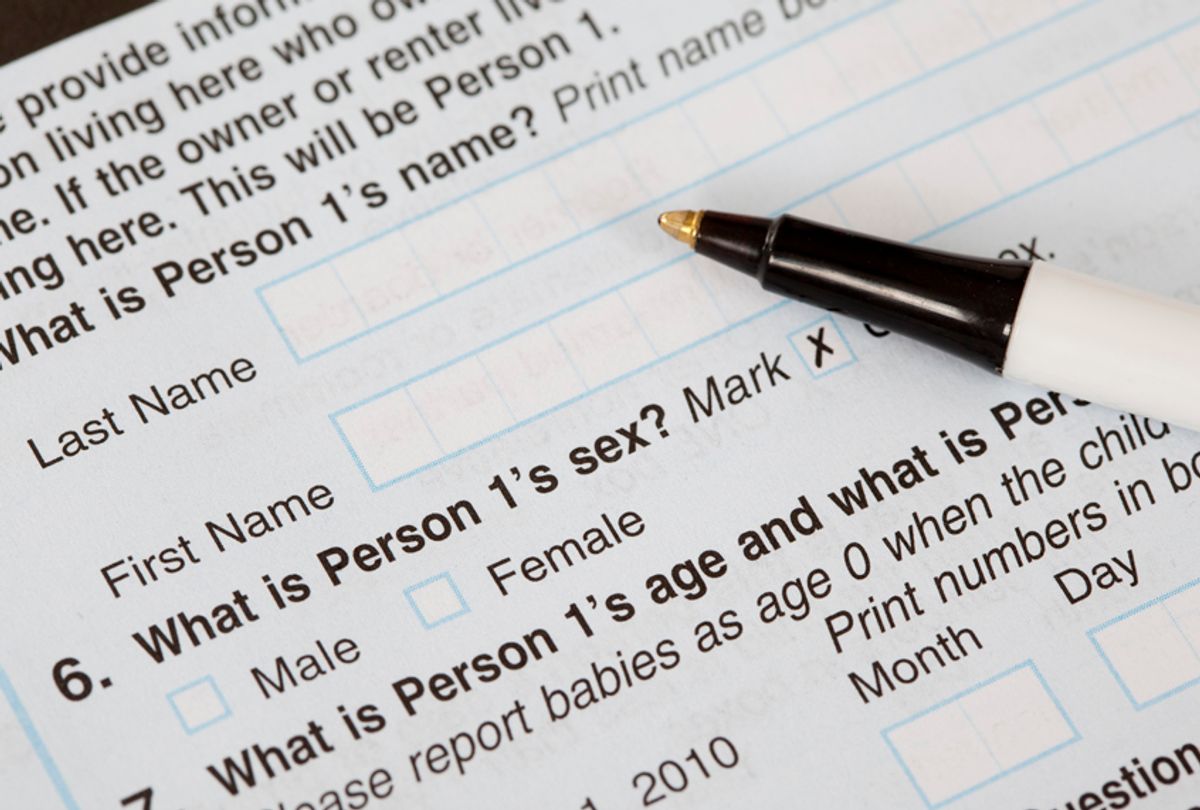President Donald Trump is now going to require Americans who take the 2020 census to answer a question about their citizenship status, a decision that carries with it potentially massive implications for millions of people.
"Innocuous at first blush, its effect would be truly insidious. It would discourage noncitizens and their citizen family members from responding to the census, resulting in a less accurate population count," California Attorney General Xavier Becerra and Secretary of State Alex Padilla wrote in the San Francisco Chronicle on Monday. They also described the effort to determine citizenship status as "illegal" and described it as "an extraordinary attempt by the Trump administration to hijack the 2020 census for political purposes."
Secretary of Commerce Wilbur Ross, by contrast, justified the decision in a letter that downplayed the possibility that adding the question would reduce the population count.
"The Department's review demonstrated that collection of citizenship data by the Census has been a long-standing historical practice. Prior decennial census surveys of the entire United States population consistently asked citizenship questions up until 1950, and Census Bureau surveys of sample populations continue to ask citizenship questions to this day," Ross argued.
He added, "The reinstatement of a citizenship question will not decrease the response rate of residents who already decided not to respond. And no one provided evidence that there are residents who would respond accurately to a decennial census that did not contain a citizenship question but would not respond if it did (although many believed that such residents had to exist)."
The decision to add the question is being justified as driven by Attorney General Jeff Sessions' desire to be able to better gauge who is eligible to vote.
"This data is critical to the Department’s enforcement of Section 2 of the Voting Rights Act and its important protections against racial discrimination in voting. To fully enforce those requirements, the Department needs a reliable calculation of the citizen voting-age population in localities where voting rights violations are alleged or suspected," wrote General Counsel Arthur E. Gary from the Justice Management Division in a letter to the Census Bureau in December, according to a story first reported by ProPublica.
Yet, as The Washington Post pointed out, this is a weak explanation, considering that the end result of the census could be a misdirected allocation of congressional power from urban states to rural ones:
Whether or not Sessions actually wants to improve enforcement of the Voting Rights Act, this rationale alone does not address the problem raised by critics, which is that adding a citizenship question could depress the response rate from undocumented immigrants, resulting in an undercount in high immigrant areas. As they have pointed out, all people residing in the U.S. — whether citizens or not — must be counted in the census for purposes involving congressional representation and the distribution of federal money. Such undercounts could result in a shift of power and money to rural areas, and states like California have already launched lawsuits.
Among the people who run the census in states like Texas, where there is a larger number of undocumented immigrants, the consensus has long been that including a citizenship status question will have a detrimental effect on the survey. According to The Texas Tribune:
But local officials, demographers and advocates all agree that including a citizenship question on the 2020 questionnaire would be incredibly detrimental to an accurate count in Texas because it would further frighten immigrants — even those authorized to be in the country — and their families and keep them from being counted.
Vanita Gupta, the chief executive of the Leadership Conference on Civil and Human Rights, and one of President Barack Obama's deputy attorneys general, also made it clear that adding the question to the census would be a bad idea.
"Adding this question will result in a bad census — deeply flawed population data that will skew public and private sector decisions to ensure equal representation, allocate government resources and anticipate economic growth opportunities — for the next 10 years. The stakes are too high to allow this. We urge Congress to overturn this error in judgment," Gupta said in a statement, according to The New York Times.

Shares